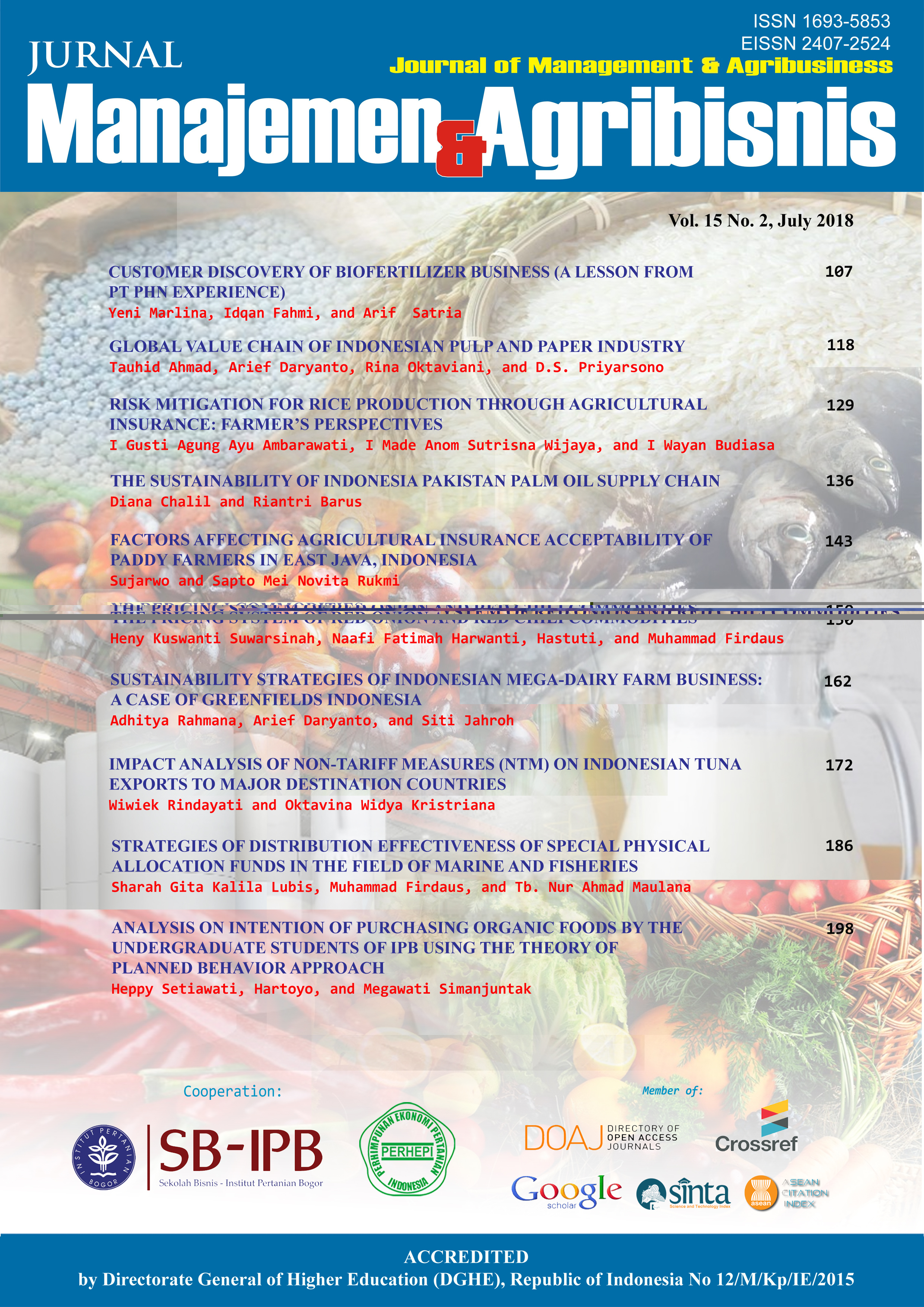Abstract
Global Value Chain (GVC) has been a global phenomenon since 1980s when export values no longer represented the actual benefit of a country’ economic measure. Furthermore, GVC measurement applying input-output table approach has quite rapidly developed. Given the fact that the role of Indonesian pulp and paper industry is increasingly important in the country’s economy, this study aimed at measuring the pulp and paper industry GVC in 1995 and 2011 as well as its position and participation in the global GVC using Inter-Country Input-Output (ICIO). The results show that GVC of Indonesia's pulp and paper industry is generally in the form of value-added exports in intermediate absorption by direct importers and indirect final exports and also in the form of foreign value-added return in foreign countries in intermediate exports and also value-added exports in intermediate goods exports to the third countries. GVC Indonesia is also still dominated by domestic value-added compared to foreign value-added and remains in a “downstream” position and has decreased its GVC participation globally. In the future, it is important to strengthen GVC participation by maintaining greater ownership of domestic value- added in Indonesia's pulp and paper industry.
Keywords: global value chain, pulp and paper, Intercountry input-output, GVC position and participation
Authors
Authors who publish with this journal agree to the following terms:
- Authors retain copyright and grant the journal right of first publication with the work simultaneously licensed under a Creative Commons Attribution License that allows others to share the work with an acknowledgement of the work's authorship and initial publication in this journal.
- Authors are able to enter into separate, additional contractual arrangements for the non-exclusive distribution of the journal's published version of the work (e.g., post it to an institutional repository or publish it in a book), with an acknowledgement of its initial publication in this journal.
- Authors are permitted and encouraged to post their work online (e.g., in institutional repositories or on their website) prior to and during the submission process, as it can lead to productive exchanges, as well as earlier and greater citation of published work (See The Effect of Open Access).

